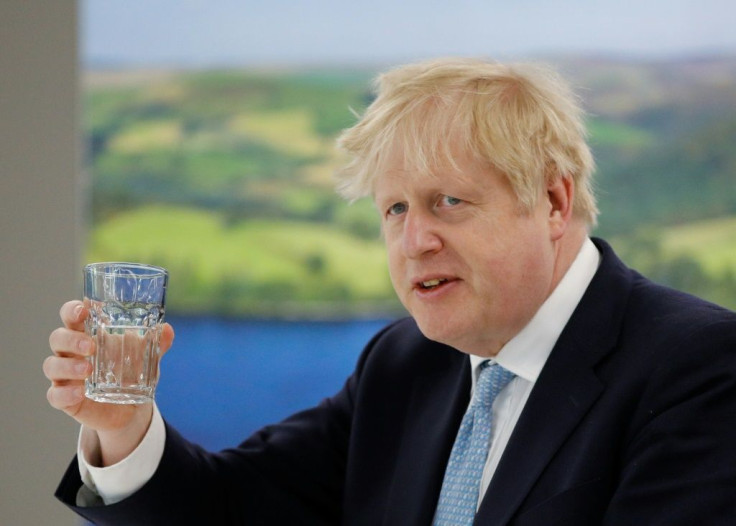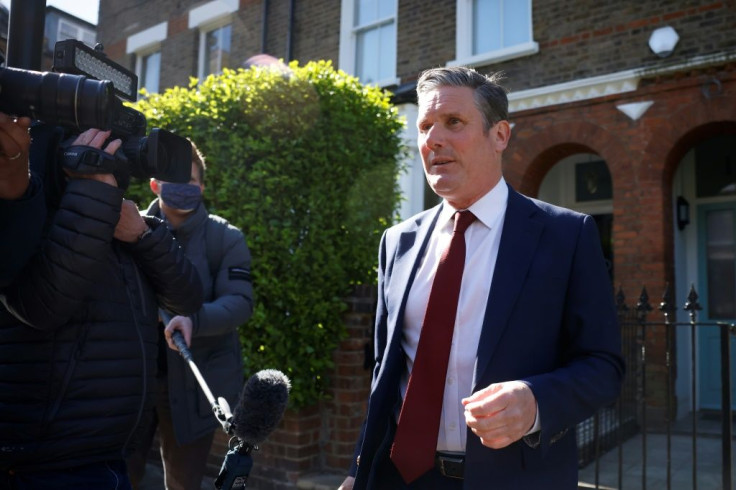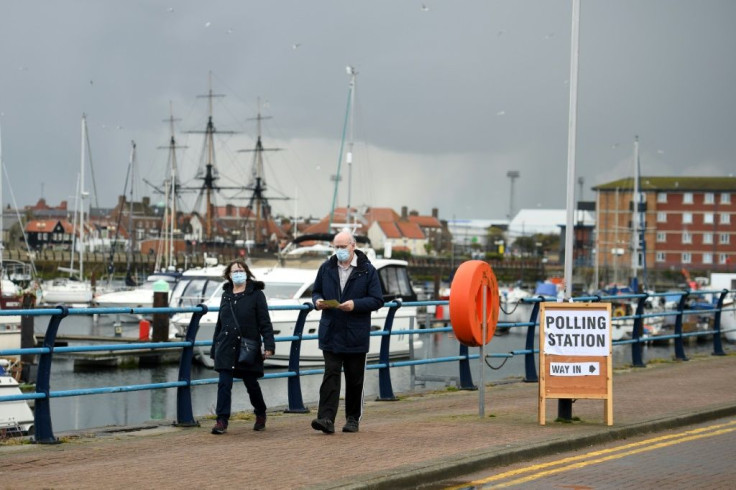Soul-searching For UK's Labour After Johnson Triumphs
The "crushing" election rout suffered by Britain's Labour party has reopened internecine fighting as the centre-left opposition struggles to dent the vaccine-boosted appeal of Prime Minister Boris Johnson's Conservatives.
Results so far from "Super Thursday" regional and local polls indicated the coronavirus pandemic and Brexit have remade the normal rules of politics, with the centre-right government building on its triumph from the 2019 general election.
Labour leader Keir Starmer took over a year ago after the party under hard-left predecessor Jeremy Corbyn crashed to its worst result since 1935, and has faced the near-impossible task of opposing Johnson during a national emergency.
He has struggled to break through when the public has wanted a sense of common purpose during the pandemic, and the elections came just as a new mood of optimism is swelling thanks to Europe's most successful inoculation campaign.
More fundamentally, Britain's 2016 referendum on EU membership eroded old party loyalties, and continues to bring the Tories unprecedented success in Labour heartland seats such as Hartlepool.

The constituency in the rust-belt port in northeast England, which was strongly pro-Brexit, voted for a Conservative MP on Thursday for the first time since its creation in 1974.
Polling expert John Curtice said that in "Leave" areas where the last local elections were held in 2016, the swing from Labour to Conservative was averaging 12 points.
Decaying industrial areas in Labour's old "Red Wall" of northern England went decisively for Johnson's pro-Brexit campaign in 2016, and he has since promised a "levelling up" agenda of economic opportunity in forgotten places.
"These figures illustrate the lack of progress that Labour has made in reconnecting with working-class voters since the (2019) general election," Curtice told the BBC.

Corbyn allies were quick to sharpen their knives Friday after Starmer's centrist candidate was roundly rejected in Hartlepool.
"Crushing defeat for Labour in Hartlepool. Not possible to blame Jeremy Corbyn for this result. Labour won the seat twice under his leadership," left-winger Diane Abbott tweeted.
"Keir Starmer must think again about his strategy," she said.
Fellow left-winger Richard Burgon said the result in Hartlepool showed Labour was "going backwards" under Starmer and needed "to urgently change direction".

However, others pointed out that Corbyn had been even more roundly rejected at the ballot box, and left-wingers were missing the point by replaying old battles.
Peter Mandelson, the former Labour MP for Hartlepool who was one of Tony Blair's key lieutenants in rebuilding the party in the 1990s, told the BBC that he blamed the loss on "two Cs: Covid and Corbyn".
Starmer's recent attacks on government "sleaze" in the awarding of pandemic-related contracts, and on Johnson's refusal to answer more fully about who funded a luxury refurbishment of his Downing Street flat, appear to have fallen flat.
The Conservatives also got an election-day boost with feverish coverage in right-wing newspapers of a Brexit-related standoff involving a flotilla of French fishing boats around Jersey, watched by a pair of Royal Navy vessels hurriedly deployed by Johnson.
Labour's post-2016 decline in northern England was shown elsewhere on Thursday, in mayoral and council elections, and its longer-term collapse in Scotland has opened up fertile space for a pro-independence movement north of the border.
The results came despite the party taking heart from the US presidential triumph of Democrat Joe Biden.
Some critics want Starmer to emulate the "unity task force" Biden created to model new policies with his left-wing primary rival Bernie Sanders.
Like Biden, who defeated Republican president Donald Trump, Starmer faces a shape-shifting opponent in Johnson who does not follow the normal narrative of centre-right politics.
The prime minister has overseen gargantuan spending to combat the pandemic, and looks inclined to maintain a high level of state intervention to sustain the coming economic recovery.
So Starmer needs a new message to regain the initiative, and is tipped to start by reshuffling his front-bench team to sharpen the party's listless attack lines.
"I never thought we would climb the mountain we have to climb in just one year," the Labour leader said ahead of election day.
"We've got to rebuild into the next general election -- that is the task in hand."
Starmer has, at most, three years to achieve that, hoping that the twin effects of Brexit and coronavirus eventually fade and the normal political rules return.
© Copyright AFP 2024. All rights reserved.





















